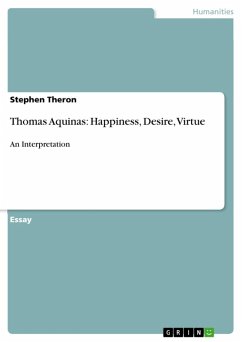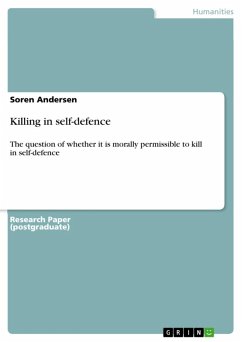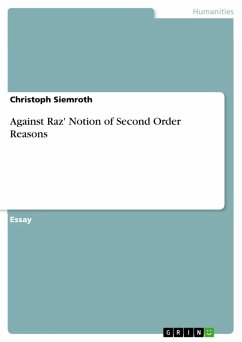Essay from the year 2008 in the subject Ethics, grade: No specific grade, Stockholm (Sankt Sigfrids Prästseminarium), course: Given as a course in ethics for seimarians, 1994, language: English, abstract: The crisis of ethics in our time calls for a synoptic view capable of kindling confident teleological motivation, in persons and societies. It is futile to search for the "clear and distinct idea" in a field of such universal importance as ethics, for which the ordinary discourse of humanity is well suited. Rather, our notions must be open, open to the analogies in things and situations, and open too to the real human situation in all its depth and breadth, such things as the desires of the human heart, the burdens of finitude, misfortune and death, the polarization of the sexes, the insights and traditions of religion, the exigences of politics, the compelling witness of the arts and of literature. The reason for this universal importance, such that a field of discourse considered especially intractable or even, recently, "queer" (J.L. Mackie), cannot be isolated as if somehow less scientific and hence inherently problematical or "emotive", was clearly stated by Aristotle when founding this science, this theoria of praxis. It is that ethics is concerned with the nature and end of man, with man, that is, in view of his characteristic action or praxis. That is to say, to take the short way for the present, it is the science of human happiness, of how to be happy. But this is the object of all human endeavour without exception. Hence, if its content be ever identified, e.g. as the vision of God, then it will follow that this content is the ultimate aim of all our civil and social arrangements, a conclusion that St. Thomas unhesitatingly draws.1 1 Summa contra gentiles III 37.
Dieser Download kann aus rechtlichen Gründen nur mit Rechnungsadresse in A, B, BG, CY, CZ, D, DK, EW, E, FIN, F, GR, HR, H, IRL, I, LT, L, LR, M, NL, PL, P, R, S, SLO, SK ausgeliefert werden.









